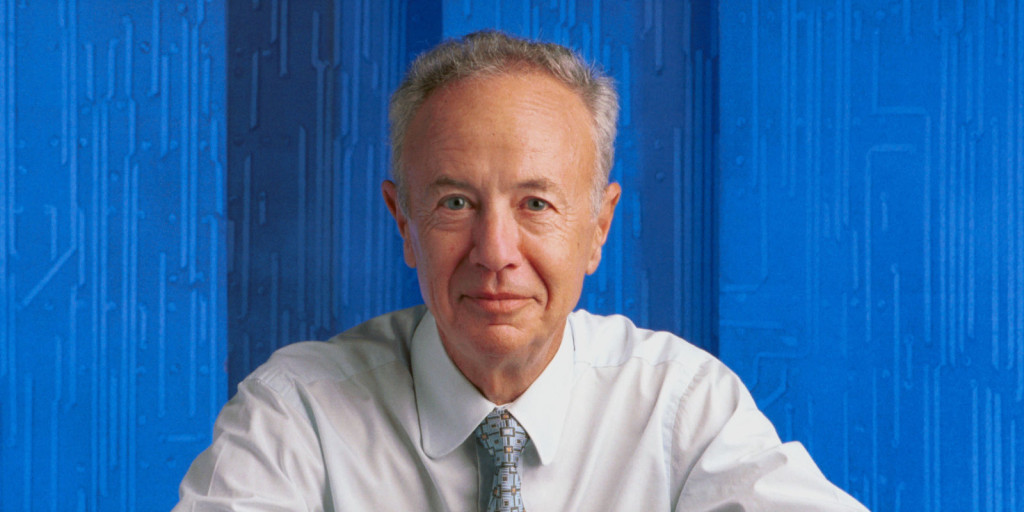
CNN: Andy Grove, former Intel CEO and personal computing pioneer, dead at 79. It’s worth taking a second this morning to think about why we remember what Andy Grove did when other pioneers of silicon are mostly forgotten.
Motorola, Texas Instruments and others built chips. Andy built an ecosystem.
While Wintel may rightly be regarded as an example of a noxious monoculture, mostly because of the Windows side of the equation, Andy recognized the potential for personal computers and ensured that they would run on his chips. And he recognized that Wintel was only one ecosystem that could have been built with Intel as its foundation—witness his convincing Steve Jobs to shift the architecture of Macs away from PowerPC to Intel chips in 2006.
I had an opportunity during the 2001 MIT Sloan Tech Trek to meet Andy. He spoke with a bunch of MBA students for a few minutes, and took questions. He struck me as a long thinker, so I asked him a long thought question: how long could Moore’s Law continue to hold before the physics of small matter caused it to bottom out? He was airy as he said it was a “20 year problem.” And he was right: he knew that there was plenty of room to continue innovating on the silicon. He didn’t say it, but I suppose he was more focused on the business of the ecosystem; even then you could read the writing on the wall that the antitrust suit, a resurgent Apple, and mobile computing were about to take the wind out of Microsoft’s sails.
I don’t know that I’ll ever get to talk to a more brilliant man (not counting Bill Gates, but I never got a chance to ask him any questions as an intern). Rest in peace.
